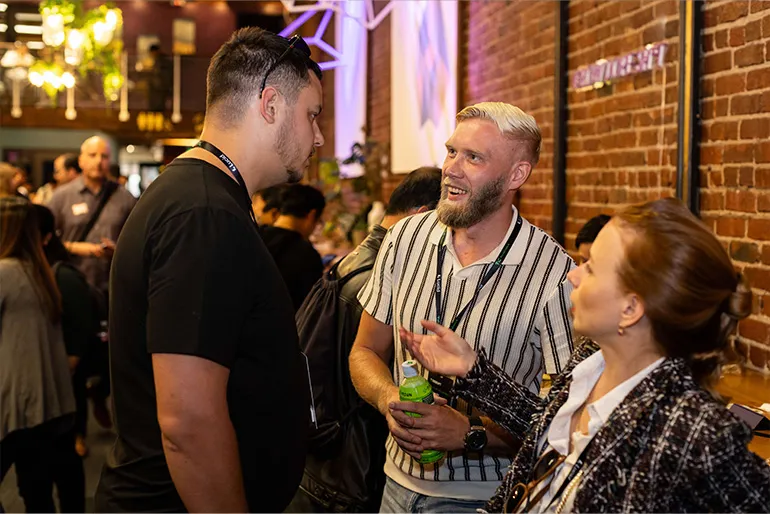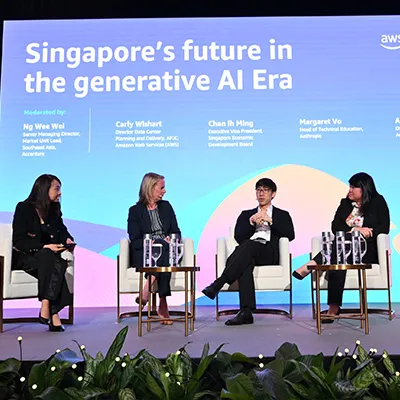Generative artificial intelligence (AI) is impacting existing industries and reshaping how business is done. There is an urgent need for businesses to identify use cases and enhance their capabilities to capitalise on emerging growth opportunities.
Singapore is committed to fostering a robust environment for AI innovation and two Singapore government agencies, the Infocomm Media Development Authority of Singapore (IMDA) and Singapore Global Network held a sharing session on the sidelines of TechCrunch Disrupt 2023, which took place in San Francisco in September.
Dr Andrew Ng, General Managing Partner at venture studio AI Fund gave a keynote presentation focusing on AI developments globally and trends in Singapore. He also participated in a lively panel discussion with Darius Liu, Head of Strategy, Partnership and Growth at Singapore’s national AI development programme AI Singapore; Joshua Wong, Co-founder and CEO of AI-powered content creation and management platform Hypotenuse AI; and Marcus Tan, Co-founder of re-commerce second-hand marketplace Carousell.
Here are the key takeaways on why it is an opportune time for AI startups to leverage Singapore as a launchpad for success in Asia.
#1 A forward-leaning regulatory landscape
Businesses in Singapore are seeking AI solutions more actively than those in other markets to deliver value-added products and services. The government is supporting companies in various industries like finance, professional services and even healthcare to develop applications powered by Generative AI models.
For example, the Monetary Authority of Singapore’s Financial Sector Technology and Innovation Scheme includes an Artificial Intelligence and Data Analytics (AIDA) grant designed to help Singapore-based financial Institutions, FinTechs, or Industry consortiums, by co-funding qualifying expenses, capped at S$500,000.
Projects must be designed to promote AIDA adoption with the objective of driving improved decision making and generating better insights through AIDA applications1,2.
Said Liu, “From a regulatory, business and market development standpoint, the regulatory landscape is robust yet accommodating [creating a] very fertile ground for innovation and adoption.”
For healthcare, there are AI platforms and startups that are utilising Singapore’s established healthcare records to develop solutions, said Dr Ng.
One such example is health technology agency Synapxe's AI-assisted screening programme, which can identify patients who are at a high risk of readmission. Once identified, the hospitals can design community health and social support plans for such patients, reducing their likelihood of readmission3.
Other AI driven programmes are readily being implemented in hospitals countrywide, highlighting an eager market that AI startups can plug into3.
IMDA’s Chief Executive Lew Chuen Hong commented that Singapore has sandboxes and enthusiastic lead users. He highlighted that the sandboxes provide startups the opportunity to work closely with regulatory bodies to facilitate innovation. Tech startups from many fields would be able to leverage these platforms, enabling them to commercialise their AI-based products or develop suitable use cases.
The AI Trailblazers Initiative provides such a sandbox, where Singapore-based businesses can tap on Google Cloud’s AI toolsets to create generative AI products, hence accelerating the development and adoption of AI solutions4 .











